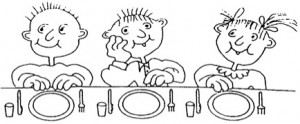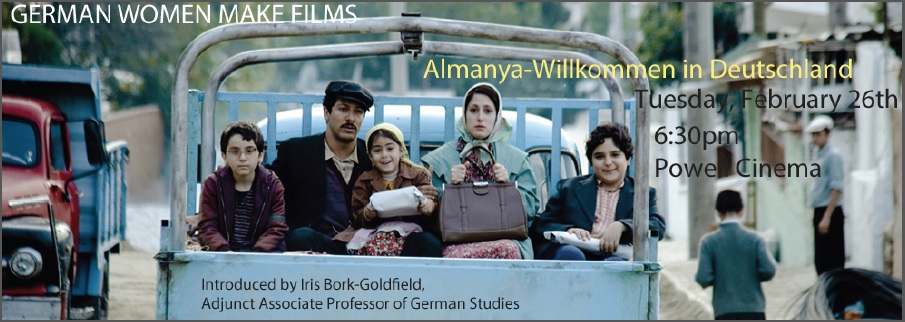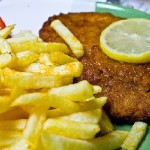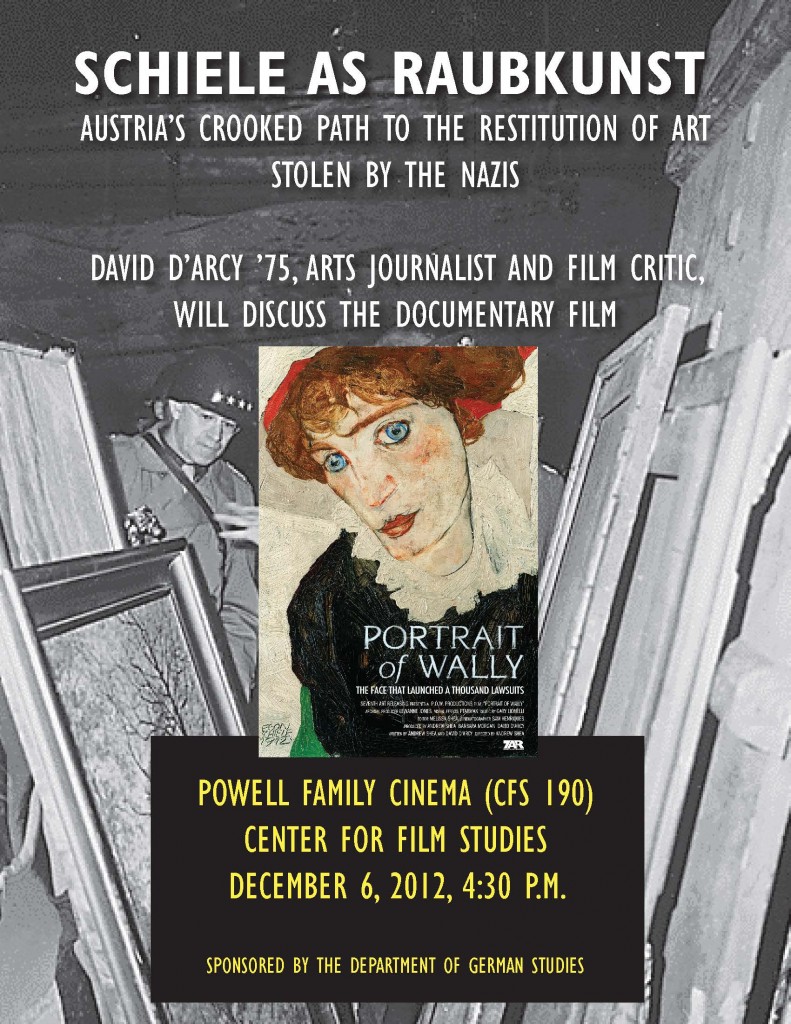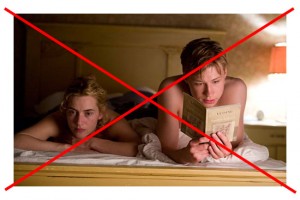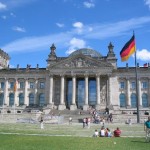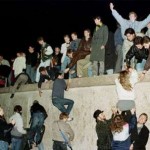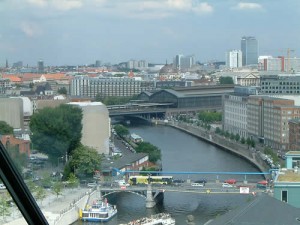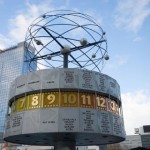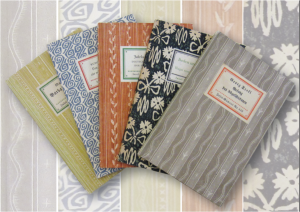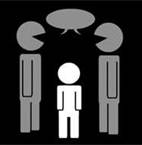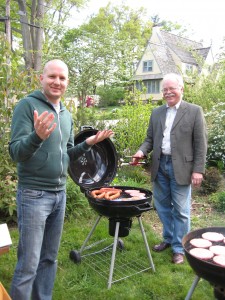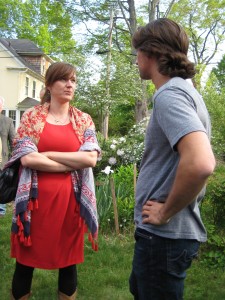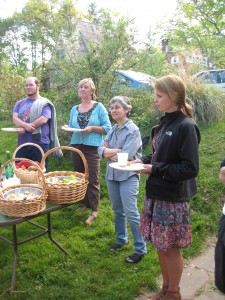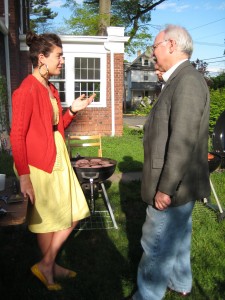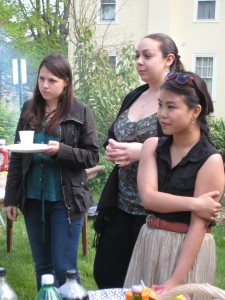Faculty Dining Room
USDAN im dritten Stock
Mittwoch, den 27. März
12.15 – 13.30 Uhr
Events
German Ladies Make Movies I – Almanya – Willkommen in Deutschland – Februray 26th, 6:30PM Powell Cinema
| Almanya – Willkommen in Deutschland is the first movie in our spring film series. Hüseyin Yilmaz came to Germany from Turkey in 1964, and later brought his wife and children. With warmth and a sense of humor, his granddaughter recounts their family history during a family vacation back home in Turkey. An uplifting, funny film about heritage and intercultural family life. Directed by Yasemin Samdereli, 95 min., Germany 2011 Introduced by Iris Bork-Goldfield, Professor of German Studies.More Information and Trailor |
Peter Handke in America
 Friday, December 7th, 6:30 p.m. Deutsches Haus at New York University, 42 Washington Mews New York, NY 10003
Friday, December 7th, 6:30 p.m. Deutsches Haus at New York University, 42 Washington Mews New York, NY 10003
Please join the German House in New York City for a discussion with Fatima Naqvi (Rutgers University), Christoph Bartmann (Goethe Institut NYC), Klaus Kastberger (University of Vienna), Heike Polster (University of Memphis), Krishna Winston (Wesleyan University), and Thorsten Carstensen (The Indiana University School of Liberal Arts).
Peter Handke in America is an important theme for understanding the writer’s work. Because of his life-long fascination with America, Handke was among the first German-speaking writers of his generation to present a positive image of the United States against the anti-imperialist aversions of the European 1968-movement. Particularly in his early work, scholars have traced his fascination with writers such as John Ford, Walker Percy (whom he also translated), as well as the blues, New York City, the image of the “Native American” and with the beauty of the American landscape. His 1971 novel Short Letter, Long Farewell makes his fascination with the United States the central motif. Handke also lived in New York (after lengthy travels through Alaska), where in 1979 he wrote his important novel The Long Way Round. In his film Three American LPs, he co-produced with Wim Wenders, many of these themes can also be clearly identified. More information
You can watch some of the discussion on Youtube.
William C. Donahue, “Domesticating the Holocaust: Our Twisted Love Affair with Bernhard Schlink’s The Reader.”
William Donahue, Professor of German and Professor of Literature as well as a member of the Center for Jewish Studies and the Center for European Studies at Duke University, will discuss new research on the reception of the Holocaust for a work in progress and for Holocaust Lite, the recently published German translation of his book Holocaust as Fiction. Bernhard Schlink’s “Nazi” Novels and Their Films. Holocaust in Fiction is “the first scholarly study to probe the ‘Schlink phenomenon’ and to analyze its profound role in coming to terms with the Holocaust. Donahue dissects the seductive, transnational appeal of his work and the ways in which popular culture more generally has contributed to the success of Germany’s normalization campaign” (Todd Samuel Presner).
Tuesday, November 13, 2012 at 7:30p.m. Downey 113
Sponsored by German Studies and Jewish & Israel Studies
STUDY IN BERLIN
Meet Jochen Wohlfeil, Adjunct Associate Professor of the Practice in German and Resident Director of Duke in Berlin
Jochen Wohlfeil, usually omnipresent in Berlin as Director of Duke University’s academic program there but in residence in Durham this semester, will give a presentation on Duke in Berlin and discuss student life in Germany’s greatest city.
Monday, November 12
4:30p.m – 5:30p.m. in Fisk 210
Hören und Diskutieren
Das German Studies Department lädt ein zu zwei Vorträgen von GRST Majors
Freitag, den 9. November um 14.00 Uhr in Fisk 404
Mari Jarris
“A Contemporary Critique of Metaphysics:
Adorno’s Nietzschean Analysis of Astrology.”
&
Katie Dean
“‘Überfrau’ oder Opfer?
The Liminal Characterization of Women in 19th Century German Drama.”
Die Vorträge sind auf Englisch, die Diskussion auf Deutsch und Englisch.
EXHIBITION OPENING RECEPTION AND TALK
SAVED FROM EUROPE: THE KALLIR FAMILY COLLECTION OF AUSTRIAN AND GERMAN LITERATURE
WEDNESDAY, OCTOBER 24, 2012 — 4:30 – 6:00 PM
SMITH READING ROOM, OLIN MEMORIAL LIBRARY
252 CHURCH STREET, MIDDLETOWN
In 1939, the Austrian art-dealer and publisher Otto Kallir fled war-torn Europe, bringing with him to New York his irreplaceable art and book collections. In New York, he started his life over, establishing a new art gallery (the Galerie St. Etienne, still operating today), a publishing house (the Johannes Presse), and becoming one of the central figures in circles of Austrian émigrés in the U.S., maintaining his many contacts to leading artistic and literary figures of his day. The Kallir family has generously donated Otto Kallir’s book collection of Austrian and German literature to Wesleyan University, highlights of which are on display in Olin Library from October 19 to November 27, 2012. The collection features first editions, signed copies, books inscribed to Kallir and his wife, fine press books, several unique manuscript items, and more. An opening reception will be held on Wednesday, October 24, from 4:30-6pm, with remarks by John Kallir (Otto Kallir’s son), and a short talk about the collection by Wesleyan Associate Professor of German Studies Ulrich Plass. The event is free and open to the public.
SPONSORED BY
The German Department, Olin Memorial Library, Special Collections & Archives, and the Friends of the Library
The Social Individual
Several German authors, works and themes will be presented at this year’s annual conference of the Northeastern American Society for 18th Century at Wesleyan University on October 12 and 13.
Friday, 12 — 9:00 – 10:30 a.m.
The Imagination and Sociability in German Literature …………………………………………………………… Wyllys 115
Chair: David Pugh (Queen’s University)
Andrea Speltz (University of Guelph):“Imaginative Compassion in Christoph Martin Wieland’s Die Geschichte des Agathon”
Paola Mayer (University of Guelph): “Einbildungskraft as Creator of Einbildung: E.T.A. Hoffman’s Die Räuber”
Dennis Mahoney (University of Vermont): “Joseph von Eichendorff and the Domestication of the Romantic Imagination”
Edward Larkin (University of New Hampshire): “Imagining the Social Individual: C.W. Frölich’s Über den Menschen und seine Verhältnisse”
Friday, 12 — 2:00 p.m. – 3:30 p.m.
Open Panel on Enlightenment Philosophy …………………………………………………………… Usdan 108
Chair: Lucy Guenova (Wesleyan University)
James J. Caudle (Yale University): “‘Sociability and other Cruel Sports’: James Boswell Among The Soaping Club and The Criticks”
Charlotte M. Craig (Rutgers University): “Ambivalent Traits in Gotthold Ephraim Lessing’s Image: Enlightener, National Author, Patriot, Cosmopolitan, Freemason”
Michael Printy (Wesleyan University): “‘Revolutions of the Spirit’: The Protestant Enlightenment and the Rise of German Philosophy”
Catherine Keohane (Montclair State University): “Seeing Oneself in(stead of) the Poor: Charity and Imaginative Substitution”
Satuday, 13 — 10:45 a.m. – 12:15 p.m.
Sense and Sociability in France and Germany …………………………………………………………… Wyllys 110
Chair: Edward Larkin (University of New Hampshire)
Masano Yamashita (University of Colorado): “Enlightenment Conceptions of Commonality: French Questionings of the Public Nature of Aesthetics”
David Pugh (Queen’s University): “Social Anxieties in German Asthetics”
Mark Ilsemann (University of Virginia): “‘Everyone has […] Their Own Way of Seeing’: The Science of Optics (and its Metaphors) in Georg Forster’s Anthropology”
Satuday, 13 — 2:00 p.m. – 3:30 p.m.
Genius ……………………………………………………………………………………………………………………. Wyllys 112
Chair: Ulrich Plass (Wesleyan University)
Sarah Eron (University of Rhode Island): “Fielding’s Muse: Inspiration, Genius, and the Dialogic Novel”
Amelia Bitely (University at Buffalo): “‘His name consenting crowds repeat’: The Exhortations and Praise of Genii Loci”
Lorraine Piroux (Rutgers University): “Imagining the Social Genius: Possession and Self-‐Possession in Diderot’s Paradoxe sur le comedien”
Joseph Drury (Villanova University): “The Machine in the Ghost: Ann Radcliffe’s Music”
Modernist Memories: Architecture and Identity in the Federal Republic of Germany
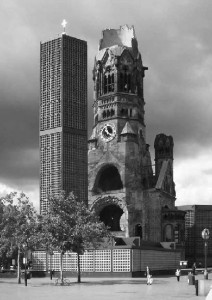
Professor Kathleen James-Chakraborty (University College Dublin), an expert on 20th century German architecture and author of numerous publications will lecture on architecture and identity in Germany at Wesleyan University on Tuesday, Sept. 25, at 4:30pm, in 41 Wyllys, room 112.
Although the most prominent buildings in Berlin since the fall of the wall in 1989, such as Daniel Libeskind’s Jewish Museum, Norman Foster’s renovation of the Reichstag, and David Chipperfield’s reconstruction of the Neues Museum, are often understood as examples of a postmodernist strategy, their juxtaposition of historic architecture, often damaged in the Second World War, and modern forms that recall the architecture of the Weimar Republic, are in fact only relatively recent examples of an architectural strategy that can be traced back to the founding of the Federal Republic. Now associated with coming to terms with the atrocities of the Third Reich, in its original entirely modernist context this pairing originally encompassed conservative nostalgia for a pre-democratic past even as it helped define a specifically non-Communist present. Following reunification it served as alternative to the postmodernism with which it is too often confused in part because the degree of modernism’s rupture with the past is often exaggerated.
This talk is made possible through the Department of Art and Art History, Samuel Silipo ’85 Distinguished Visitor Fund, and the German Studies Department.
German Studies End-of-the-Year Party
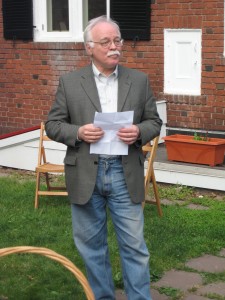
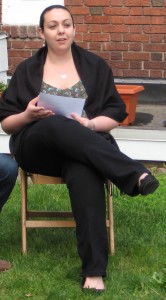
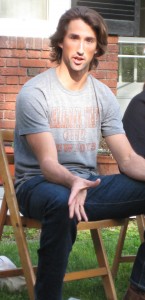 The party started off with Leo Lensing introducing our two senior thesis writers, Lynn Heere and Matthew Alexander. They both gave excellent presentations of their works. While Lynn talked about the German student movement in the Sixties, Matt introduced us to the German playwright, Lord Schadt.
The party started off with Leo Lensing introducing our two senior thesis writers, Lynn Heere and Matthew Alexander. They both gave excellent presentations of their works. While Lynn talked about the German student movement in the Sixties, Matt introduced us to the German playwright, Lord Schadt.
Lynn Heere: “From Spassguerilla to Stadtguerilla: The Theory and Praxis of the West German Student Movement.”
Matthias Alexander: “Lost Modern Love by German author Lord Schadt: A Translation and Adaptation.”
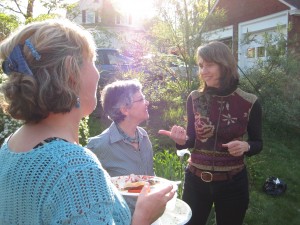 Leo Lensing thanked faculty members Krishna Winston, Uli Plass, Katja Straub, Angela Guliemetti, and Iris Bork-Goldfield for their many contributions to the department and its students. Iris thanked Stefanie Schaffler for her excellent work as a Teaching Assistant.
Leo Lensing thanked faculty members Krishna Winston, Uli Plass, Katja Straub, Angela Guliemetti, and Iris Bork-Goldfield for their many contributions to the department and its students. Iris thanked Stefanie Schaffler for her excellent work as a Teaching Assistant.
Then it was time to barbecue, sample deviled eggs, stuffed breads, and the many different salads.
GERMAN FILM FESTIVAL – (Re)imagining Post-Industrial Urbanity: Films of the Ruhr Area, Germany

The German film festival will be held in Downey House 113 on April 13 and April 14, 2012. We will be showing three films from this large post-industrial area in western Germany. The first film, Bang Boom Bang by Peter Thorwart, will be shown on Friday at 7:00 p.m. The other two-Losers and Winners, a documentary by Ulrike Franke and Michael Loeken, and Solino by Fatih Akin-will be screened on Saturday at 5:00 p.m. and 7:00 p.m., followed by a discussion. The introductory session by Sina Nitzsche, Visiting Assistant Professor of German at Oglethorpe University, and Kate Thorpe, Teagle Writing Fellow at Wesleyan will place these films in the context of the transformation through art and image-making that the region is experiencing.
The event is sponsored by the German Studies Department, Writing at Wesleyan, and the Goethe Institute Boston.



